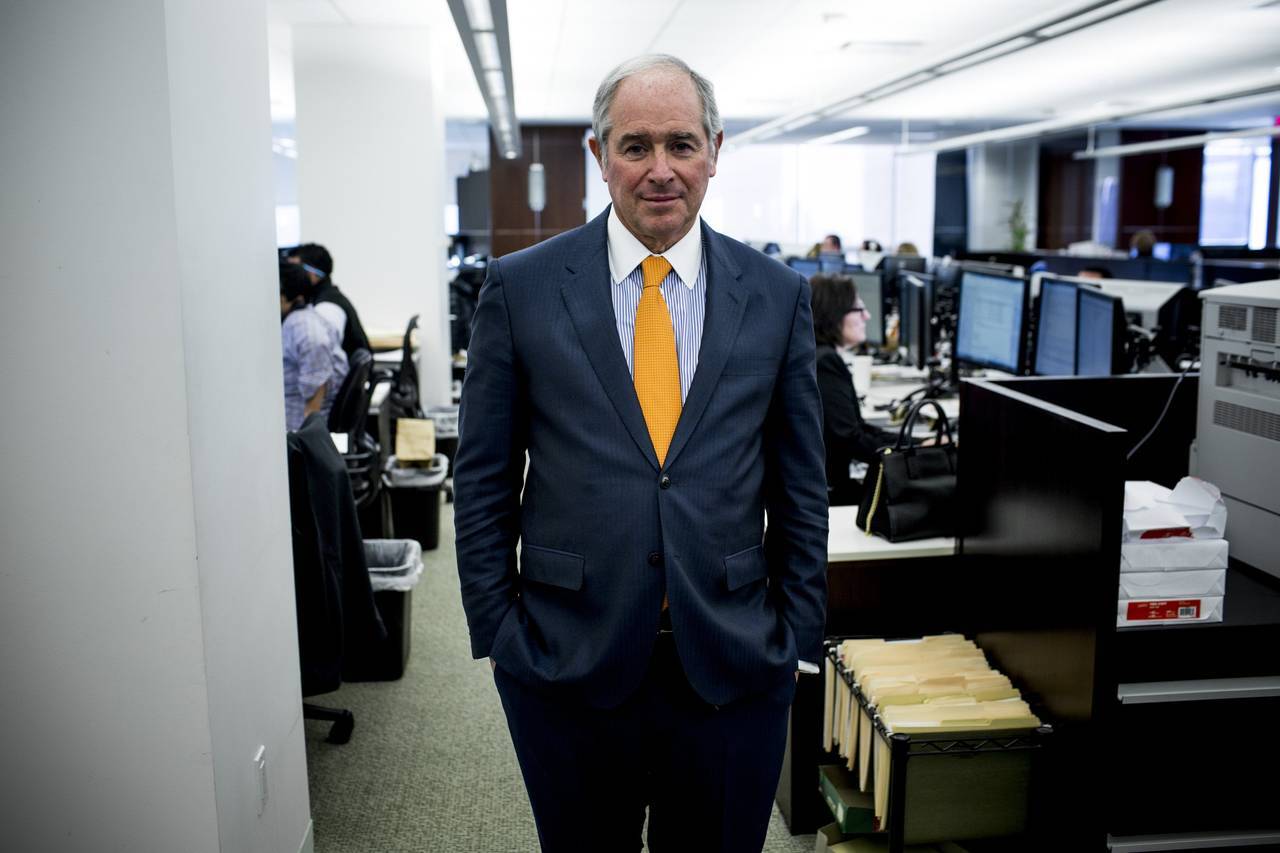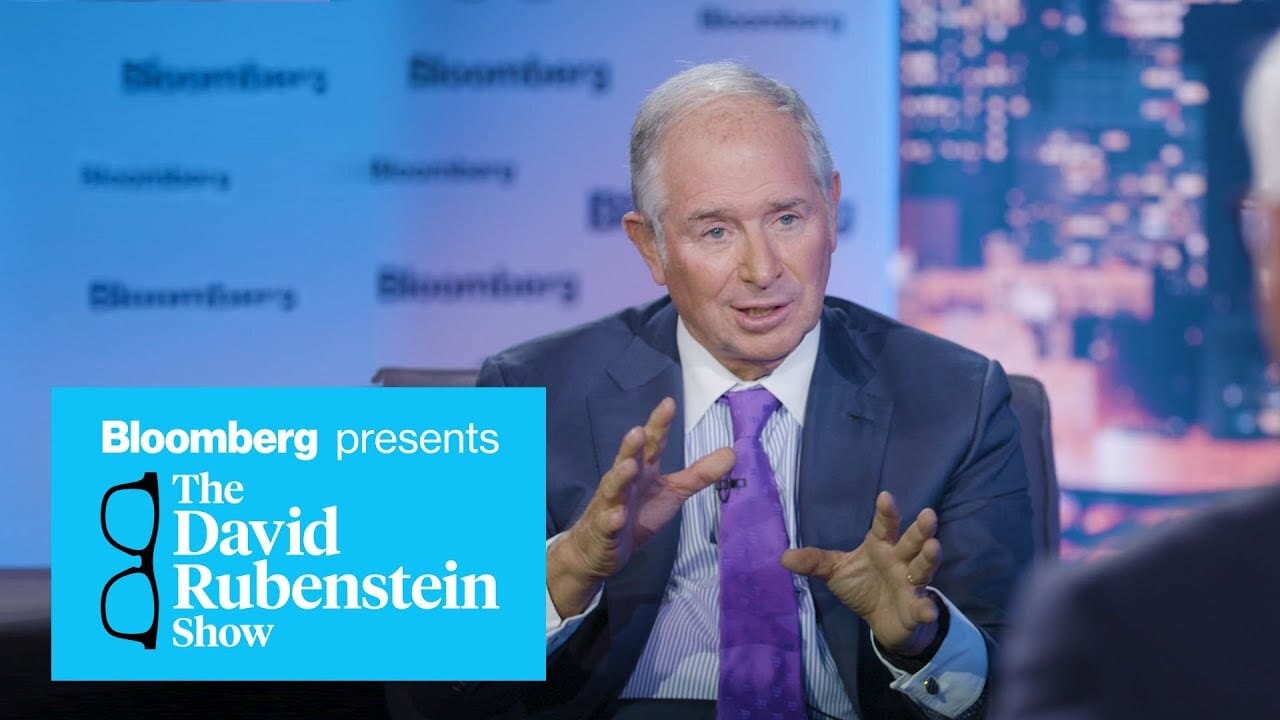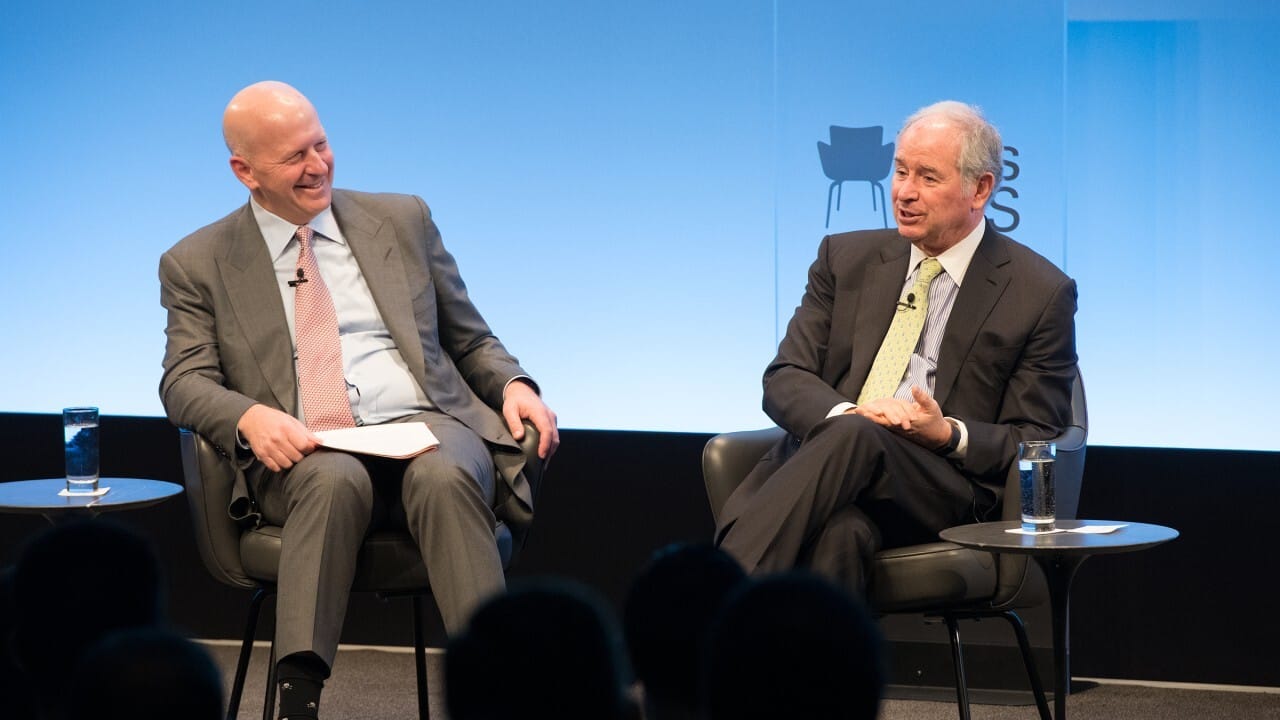- The Weekly Mensch
- Posts
- The Weekly Mensch: Stephen A. Schwarzman
The Weekly Mensch: Stephen A. Schwarzman
The story of one of the greatest entrepreneurship careers nurtured by conscious risk, bold strategy, and natural unrelenting.
Us in a Nutshell
We are passionate about the lives, the impact, and the experience of Jewish baby boomers who have changed our world. From finance to the arts, we write about the stories of contemporary heroes who — significantly and meaningfully — changed the face of their respective industries, often starting with nothing but a legacy of exile. We tell their stories for the timeless lessons of intelligence, ethics, and resilience they underline. And we also share some fun anecdotes! Nathan Tob is a fourth-year student at the Queen Mary University of London. He studies Economics, Finance, and Management. Davy Sokolski is a third-year student at Columbia University in New York. He studies International Political Economy.
What is a Mensch?
Leo Rosten defines mensch as “someone to admire and emulate, someone of noble character.” Dr. Saul Levine writes in Psychology Today that a mensch’s personality characteristics include decency, wisdom, kindness, honesty, trustworthiness, respect, benevolence, compassion, and altruism.
Stephen’s Rapid Bio

Credit: WSJ
Stephen Allen Schwarzman, born on February 14, 1947, in Philadelphia, Pennsylvania, grew up in a middle-class Jewish household that valued hard work and ambition. His father, Armand, owned a dry goods store where young Steven got his first taste of business by helping out after school. His mother, Arline, was a steady presence who encouraged his early drive. Growing up surrounded by a culture of resilience and self-reliance, Schwarzman developed a competitive spirit and a hunger to aim high.
After graduating from Yale University in 1969, where he was a prestigious Skull and Bones Society member, Schwarzman earned his MBA from Harvard Business School in 1972. He began his career in mergers and acquisitions at Donaldson, Lufkin & Jenrette before joining Lehman Brothers, where he became head of global M&A by age 31.
In 1985, Schwarzman co-founded The Blackstone Group with Peter G. Peterson, using just $400,000 in seed money. What started as a small advisory firm became the world’s largest alternative asset manager, overseeing over $1 trillion in assets. Schwarzman’s ability to see opportunities others overlooked and his disciplined, innovative approach led to groundbreaking deals, including the $39 billion acquisition of Equity Office Properties in 2007, one of the largest leveraged buyouts in history.
Beyond his business success, Schwarzman has committed billions to philanthropy, focusing on education, technology, and leadership development. He donated $350 million to MIT to establish the Schwarzman College of Computing and $150 million to Yale University for scholarships. His Schwarzman Scholars program at Tsinghua University, modeled after the Rhodes Scholarship, bridges global leadership between China and the world. He has also contributed to Holocaust education and Jewish cultural initiatives, reflecting his respect for heritage and values.
Steven Schwarzman’s life is a testament to relentless ambition, precision, and a belief in creating something that lasts. From revolutionizing private equity to building institutions that shape the future, Schwarzman has proven that success isn’t just about wealth—it’s about vision, discipline, and leaving an impact far beyond oneself.
Stephen’s Five Lessons
1. Bet big on what others overlook
Steven Schwarzman built his career on the conviction that the greatest opportunities often lie where others hesitate to tread. When he co-founded Blackstone in 1985 with just $400,000, private equity was a niche and unproven sector in finance. While many dismissed it as speculative and risky, Schwarzman saw its transformative potential. A defining moment came in 2007, with Blackstone’s $39 billion buyout of Equity Office Properties—the largest leveraged buyout in history at the time. Despite market turbulence and widespread skepticism, Schwarzman’s team acted decisively, strategically selling off parts of the portfolio. Initially viewed as an overreach, the deal ultimately became one of Blackstone’s hallmark successes. For Schwarzman, betting big was never about recklessness; it was about having a clear vision, trusting meticulous preparation, and daring to act when others hesitated. As Schwarzman and co-founder Pete Peterson shaped their venture, they met daily in a hotel lobby for three hours over the course of a year, asking themselves fundamental questions: “What do we want to become? Why would people work with us beyond the fact that we were lovely and friendly?” In time, they crystallized their strategy: pursue the biggest opportunities in finance, only engage if they could hire a “10/10” talent, and ensure that each venture was substantial enough to rise above the noise. This disciplined approach remains Blackstone’s guiding principle to this day.
True success often comes from stepping into uncharted territory with conviction. Schwarzman’s career teaches us that calculated risks, grounded in preparation and foresight, are what separate leaders from followers. Playing it safe might feel comfortable, but it rarely leads to transformative outcomes. A willingness to bet big on an idea when others shy away can unlock opportunities that redefine success. Schwarzman understood the balance between radicality and order.
2. Don’t settle
Schwarzman built one of the most recognized careers in financial services, growing up with a childhood incomprehension. At just 10 years old, he began working with his father and grandfather for ten cents an hour. By 13, young Stephen noticed the family business’s success with customers and suggested expanding its operations to a national scale. His father, however, declined the idea, saying he was content with what he had: two cars, a house, and enough money to cover his children’s college tuition. Reflecting on this moment in a talk at Goldman Sachs, Schwarzman admitted he struggled to understand his father’s perspective: “I couldn’t take that onboard. I always loved my dad, but I couldn’t understand how someone so smart would not want to do that. I didn’t love him less after that; I just realized I was different.” For Schwarzman, entrepreneurship wasn’t just a choice—it was an inherent mindset that drove him to refuse complacency and seize every opportunity. This determination was evident again in 1965, when 18-year-old Stephen, rejected by his dream school, Harvard, after being waitlisted, called the dean of admissions to make his case: “I think it’s in your interest to admit me; I think I’m going to be very successful.” Though Harvard didn’t budge, Schwarzman attended Yale and, decades later, received a letter from that same dean, who admitted he had followed Schwarzman’s career and regretted not admitting him.
If Schwarzman’s life offers any lesson, it’s the relentless pursuit of progress. His ethos of never settling for the status quo but instead striving for the next big opportunity is emblematic of a life lived in motion. As Daft Punk aptly phrased it: Harder, Better, Faster, Stronger. Schwarzman embodies an aversion to the static, a radical determination evident in every chapter of his life—from his early days in his parents’ store to Blackstone’s meteoric success and his defiant response to Harvard’s decision.
3. Relentless preparation drives results
Schwarzman’s success has always been rooted in meticulous preparation. Whether analyzing a deal, anticipating risks, or presenting to investors, Steven’s approach was simple: leave nothing to chance. Early in his career at Lehman Brothers, he would spend nights poring over every detail of a client’s business before a pitch, ensuring he knew more than anyone else in the room. This dedication carried into Blackstone, where deals were scrutinized with relentless precision. One anecdote recalls Schwarzman reviewing a critical presentation and discovering an overlooked typo, he refused to move forward until it was corrected, emphasizing that even the smallest details could impact trust and credibility. For him, success wasn’t about luck; it was about doing the work so thoroughly that no stone was left unturned. As Steven famously said: “People who succeed work the hardest, study the hardest, and prepare the hardest. You can’t shortcut your way to excellence.”
Excellence is rarely spontaneous—it’s earned through relentless preparation. Schwarzman’s career is a testament to the power of outworking, out-studying, and out-preparing everyone else. Being prepared gives you an edge no competitor can replicate. It’s the quiet work behind the scenes that builds the confidence to face challenges head-on and achieve results others deem impossible.
4. Build systems that outlast you
Steven Schwarzman’s success came not just from bold ideas but from his ability to build systems and institutions designed to thrive long after his involvement. At Blackstone, Schwarzman has established a disciplined culture of excellence, rigorous processes, and a focus on long-term strategy that has transformed the firm into a global financial powerhouse. By prioritizing scalable frameworks and empowering exceptional talent, Steven has ensured Blackstone’s success is not dependent on any one person, including himself. Steven’s philosophy was clear: great organizations must outlive their founders. This principle has extended to his philanthropy. Schwarzman didn’t just fund projects, he set out to build institutions with the capacity to shape generations, designing initiatives like the Schwarzman Scholars Program at Tsinghua University inspired by the Rhodes Scholarship but reimagined for modern global leadership. Similarly, his $350 million donation to establish the Schwarzman College of Computing at MIT reflects his focus on preparing the next generation to navigate the challenges of AI and technology. Schwarzman knew that true impact wasn’t about short-term results but about creating structures capable of delivering meaningful, long-lasting change.
True leaders focus not just on their own achievements but on creating systems that endure. Schwarzman’s story is a reminder that the most impactful success is measured by what continues to grow after you’re gone. Whether in business, philanthropy, or personal life, building structures that empower others and foster long-term progress ensures that your efforts leave a legacy that stands the test of time. The goal isn’t to be irreplaceable, it’s to create something that thrives without you.
5. Define success on your own terms
For Steven Schwarzman, success was never about following someone else’s blueprint; it was about building a vision that reflected his values and ambitions. From co-founding Blackstone in 1985 with just $400,000 to transforming it into a global financial powerhouse managing over $1 trillion in assets, Schwarzman rejected conventional limits and expectations. His focus wasn’t just on short-term wins but on creating something enduring that would outlast him. “Don’t be afraid to dream big, but make sure those dreams are yours. If you’re chasing someone else’s idea of success, you’re already behind,” he often said. This philosophy extended beyond business and into his philanthropy, where he has defined success through impact. Whether it was founding the Schwarzman Scholars Program to shape future global leaders, funding the Schwarzman College of Computing at MIT to drive innovation, or supporting Jewish heritage and Holocaust education, Schwarzman ensured that his wealth-fueled causes aligned with his principles and left a meaningful legacy.
Success isn’t about fitting into someone else’s mold—it’s about understanding what you stand for and having the conviction to build something true to your values. Schwarzman’s life reminds us that lasting success comes when we align achievement with impact, leaving the world better than we found it. Whether in business, philanthropy, or personal growth, defining success on your own terms means daring to dream bigger, giving back where it matters, and creating a legacy that reflects who you are and what you believe in.
The Quote of The Week
“Sleeping at night is not a specialty of entrepreneurs. The entrepreneur who is sleeping soundly, something bad is happening to that person; they just don't know it's happening yet”



Reply